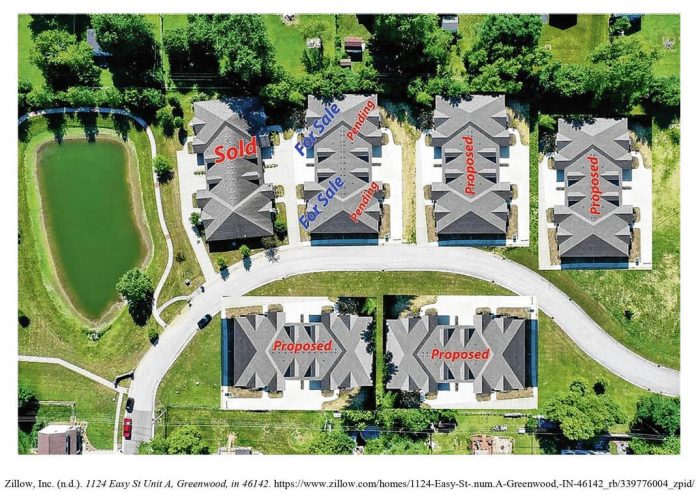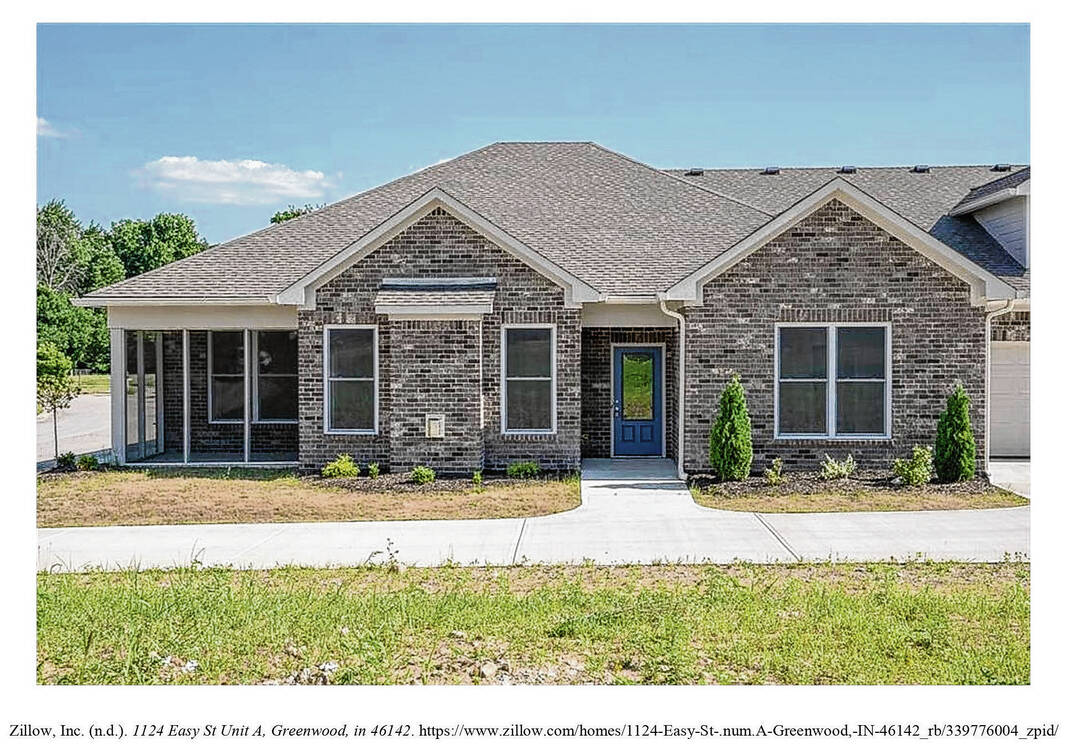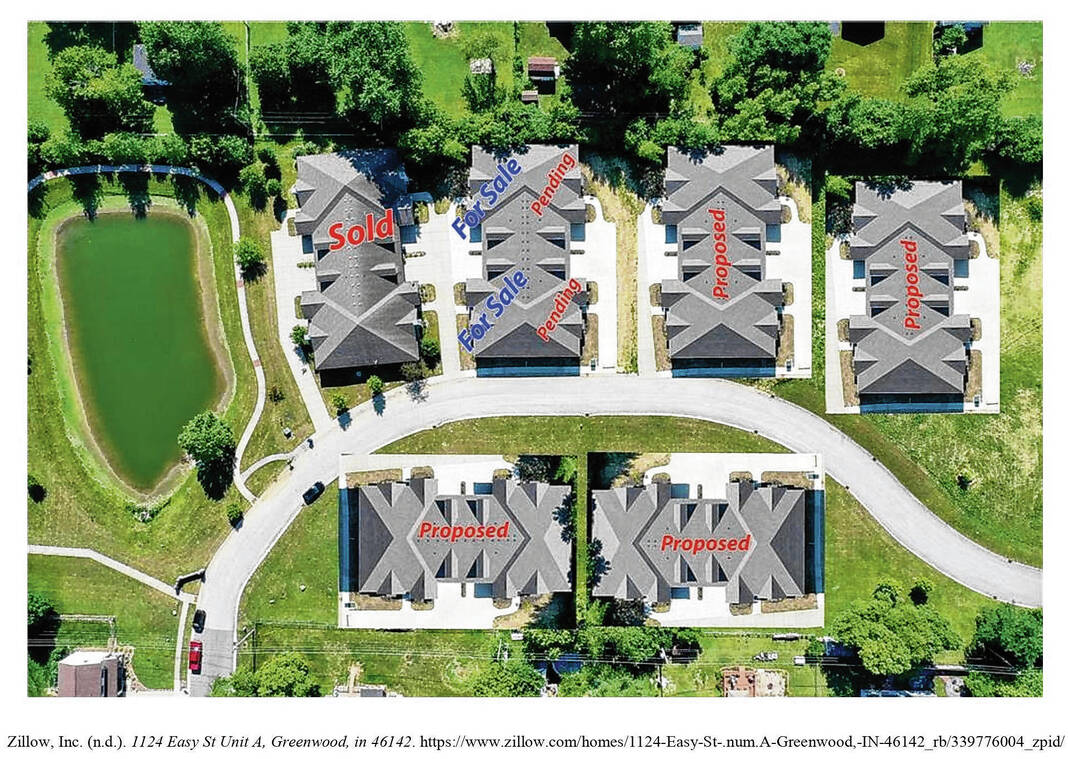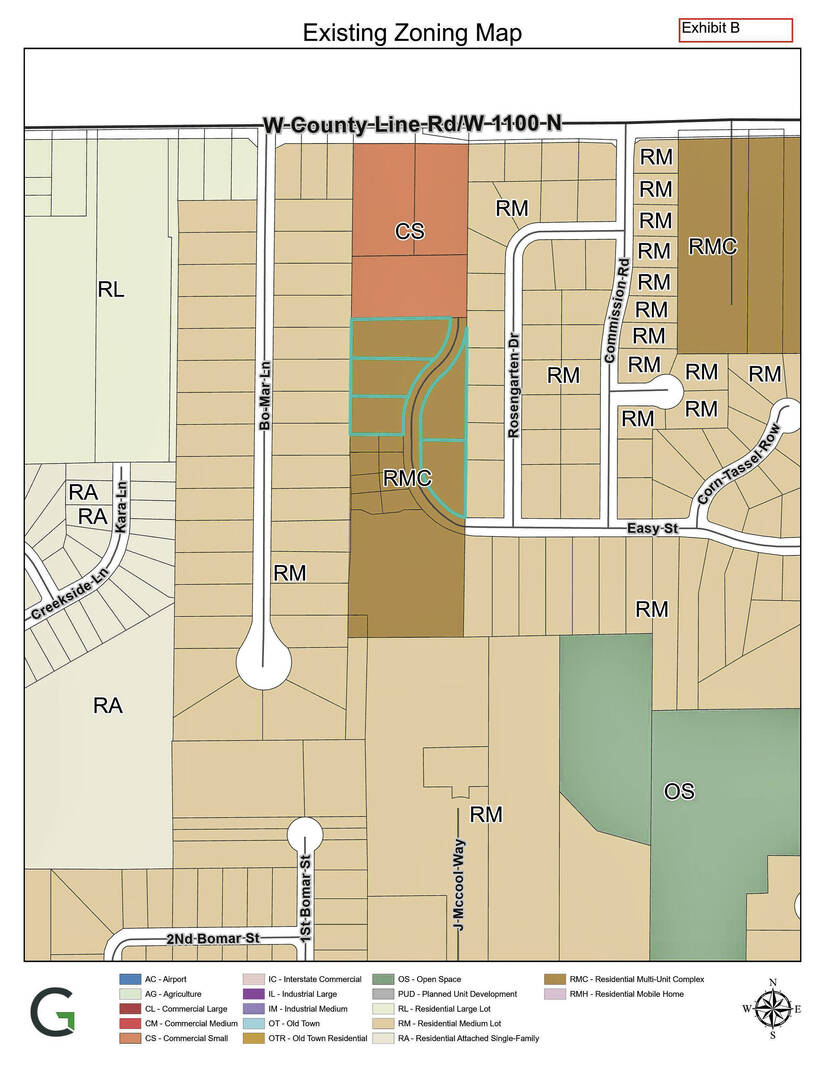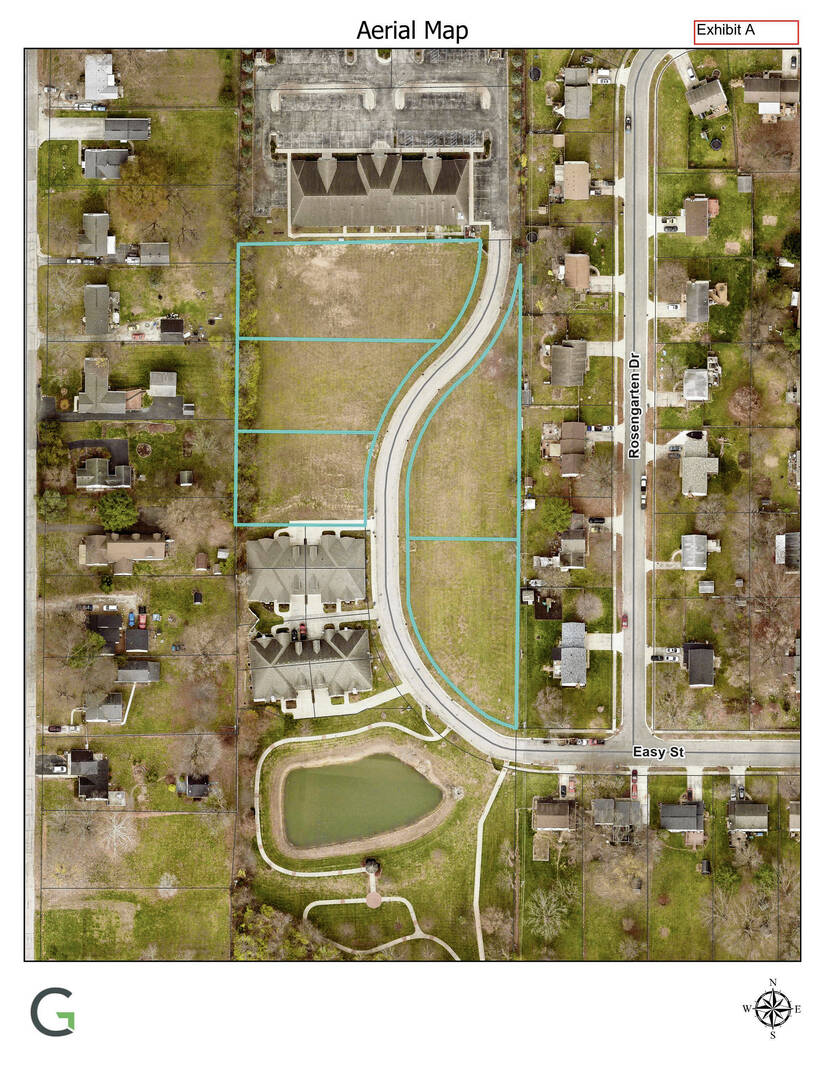The complete construction of a condominium complex first proposed in 2006 can soon move forward after two Greenwood boards approved the developer’s requests Wednesday night.
IHR Equity Fund XVII LLC came before the Greenwood Board of Zoning Appeals to ask lot size, lot width and yard setback variances. They also came before the city’s Advisory Plan Commission to ask for changes in commitments for the development to allow for a maximum of 30 condo units to be constructed and to eliminate a commitment limiting the community to residents 55 and older.
All of the requests were approved Wednesday night, though some residents expressed concerns about the changes during each of the meetings.
The requests involve a project located along Easy Street, behind MSM South, a doctor’s office. Two condo buildings have already been built, as the project was first proposed in 2006, with the requests Wednesday instead focusing on variances and commitments that would pave the way forward for the completion of the development’s five remaining buildings.
Variance requests
The land for the condos was first rezoned in 2006 for residential and residential multi-family use. The northern 3.6 acres near County Line Road was rezoned for professional office use, said Greg Ilko of Crossroads Engineers, who was representing IHR. The 3.6 acres is now MSM.
One building was constructed on time before 2013, with another being constructed afterward. The other buildings have not been built, Ilko said.
Planning Director Gabe Nelson said he believed the project fell apart during the 2008 housing crisis, and IHR, who are new owners of the property, is trying to finish the project. IHR’s efforts were also impacted by the coronavirus pandemic, Nelson said.
During this pause in construction, the city updated its Unified Development Ordinance, rezoning the land to a residential multi-unit complex. This created a problem for IHR, as the requirements for RMC zoning do not fit the project that was approved in 2006, Ilko said.
Because of the zoning change, the developer had to come ask for variances to reduce the minimum lot size and width, and yard setbacks for the front, side and rear yards to comply with the approved plans and to fit what was already constructed, Ilko said.
While the variance requests were the same for all five lots, Lots 7 and 8 had the front yard setback requests withdrawn by the developer. The rest remained unchanged.
IHR will also have to come back to the board at a later date to get a building height minimum variance, as the current zoning has a minimum height of 30 feet, which is meant for apartment buildings, not one-story condos, Ilko and Nelson said.
Some members of the public spoke out about the changes during the public hearing. However, some of the comments were meant more for the commitment changes set to be heard before the plan commission later that evening.
Nearby resident Russell Christie asked how to get in contact with the neighborhood’s homeowners association, as he’s had some issues with residents parking on the street in front of his home for weeks at a time, he said. He also asked for someone to consider parking so that this could be avoided, he said.
Former city council member Ron Bates also spoke during the hearing, providing context about the rezoning and commitments which occurred when he was in office. He was asked to bring those up at the plan commission hearing.
The BZA ultimately voted 4-0 to approve all of these variances.
Commitment changes
Illko detailed the commitment changes during the plan commission hearing. One commitment change raises the maximum number of condo units allowed from 28 to 30, while another removes the 55 and up age restriction.
As IHR was trying to market the building, they ran into trouble with the age restriction. While there are a lot of empty-nesters in the market, there are also a number of younger buyers who are interested in no-maintenance homes with smaller lots. To reach this market, they wanted the commitment removed, Ilko said.
Several nearby residents spoke out about the removal of the age restriction. Chris Elliot, who lives to the east in the Rosengarten neighborhood asked the plan commission to keep the age restriction in place.
Elliot added that him and several of his neighbors were surprised by the request, which they didn’t want to see reversed.
Bates emphasized during his testimony that the community was planned to be gated. He also asked the commission to respect the intent of those who put the restriction in place, he said.
Another resident, a woman, also asked for the restriction to remain. She expressed concern about the amount of traffic that cuts through the neighborhood, which can make it unsafe for children. She also asked them to add a play area for children so they’re not in the street.
Christie concluded the public testimony by again talking about his parking issues, also asking that access to a nearby park via a trail not be cut off by any future development.
Illko told residents and the commission that the commitment changes were to help get the development built out. The community will be gated, which should alleviate some of the high-speed traffic that comes through the community into Rosegarten to the east, he said.
He also said the land is planned with a large open space for families, and that IHR would talk to Christie to ensure pedestrian traffic isn’t cut off.
City planning staff were in favor of the commitment changes, Nelson said. The land can accommodate the additional units without running into the previously established setbacks from 2006, he said.
Additionally, there is a housing and rental shortage in the city and the condos would increase the city’s housing stock, Nelson said.
As for the 55 and up restriction, Nelson says it is not the city’s responsibility to enforce the restriction, instead, it is up to the condo association or an HOA to enforce.
“We do not think it is an area for staff to enforce,” Nelson said. “We find it difficult to see how staff would enforce this without keeping track of every sale in the condominium association and checking the new owners have a birth certificate or age.”
Nelson was asked about this comment later in the meeting by commission member Charrie Stambaugh. The HOAs are better equipped to judge if a neighborhood should have that restriction, Nelson said.
Stambaugh asked Ilko if he knew the average purchase price for the units. He did not, but Nelson said Zillow has an estimate of $271,000 on one of the condos built before.
Commission members also discussed resident’s parking concerns as well. Nelson said it would be for the city to determine without evidence whether the overflow parking is for single-family homes or condos.
The change in commitments ultimately passed 8-0, with member Brian Walker absent.


